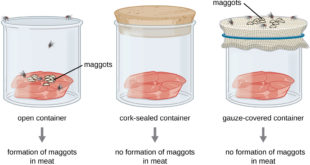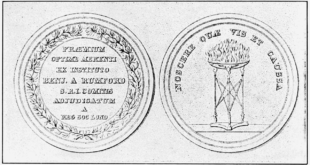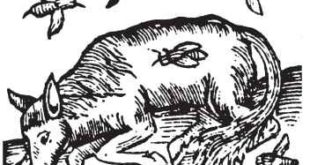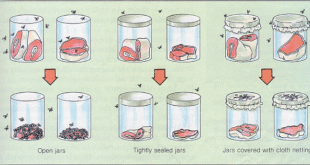This article was originally published in the Pharmaceutical Journal and Transactions, March 17, 1877, p. 758
The question whether under any known conditions the spontaneous generation of living beings can take place has been the subject of so many diametrically opposed assertions during the past few years, that the discussion seemed fast drifting into the ridiculous. As, however, an attempt at least is now to be made to decide one phase of the dispute between two of the foremost combatants, M. Pasteur and Dr. Bastian, it may be interesting to indicate the points to be dealt with.
According to Dr. Bastian if urine carefully deprived of every organic germ be exactly neutralized with liquor potasse and exposed to a temperature of 50°C. certain forms of bacteria promptly appear in the liquor. M. Pasteur repeated this experiment, with the exception that he used fused potash instead of solution of potash, and the mixture remained sterile, the inference being that the germs were introduced with the liquor potasse. He therefore expressed his opinion that it was not accurate for Dr. Bastian to say that he had discovered hte physio-chemical conditions necessary for the spontaneous generation of bacteria. Dr. Bastian replied that in using solid potash M. Pasteur had departed needlessly from the conditions of the experiment, and that as a strong solution of potash in suitable quantity could be easily heated to 110° C. in a closed glass tube there was no necessity for the substitution. Dr. Bastian looked upon it as incredible that a fluid so caustic as the strong liquor potasse he had employed could contain living germs after being heated at 110° C. Further he asserted that M. Pasteur had added too much potash and rendered the liquid alkaline.
The next step was on the part of M. Pasteur and was a “defiance” to Dr. Bastian to produce fermentation in sterile urine, under the stated condition, in the presence of competent judges, provided only that pure potash and pure water, free from organic matter, should be used in the preparation of the solution, or, if otherwise, that the solution should be previously heated to 110° C. for twenty minutes, or to 130° C. for five minutes. This challenge Dr. Bastian at once accepted, with the remark that he had already repeated his experiments under conditions even more severe than those proposed by M. Pasteur, having used liquor potasse that had been previously heated to 110° C. for sixty minutes, instead of twenty minutes, and that in twenty four to forty eight hours the urine was in full fermentation and swarmed with bacteria.
At the request of M. Pasteur, the French Academy of Sciences, before whom the latter part of the discussion had taken place, has appointed a commission, consisting of Messrs. Dumas, Milne-Edwards, and Boussingault, to express an opinion upon the point under dispute between Dr. Bastian and M. Pasteur. Notwithstanding the scientific eminence of the members of the commission, however, it is open to doubt how far they will succeed in convincing either of these able antagonists against his will.
 Pasteur Brewing Louis Pasteur – Science, Health, and Brewing
Pasteur Brewing Louis Pasteur – Science, Health, and Brewing 


